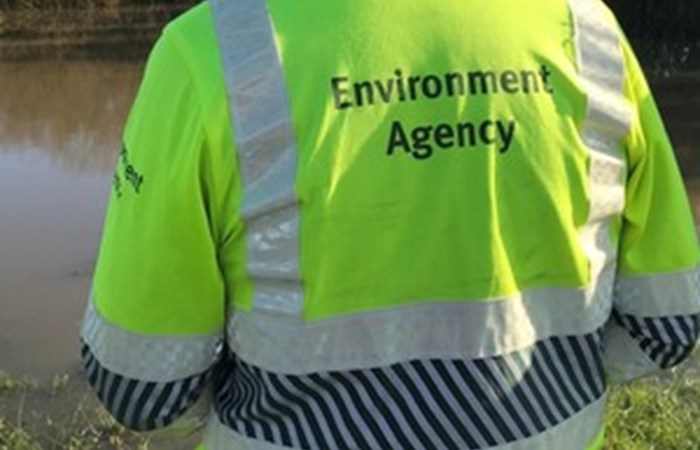Environment Agency

The innovative partnership - known as Great Yorkshire Rivers (GYR) - is striving to address all artificial barriers negatively impacting fish populations in Yorkshire, allowing the recovery of native fish species; helping rivers and communities to thrive.
Weirs and dams on Yorkshires rivers can prevent fish from moving freely around the river system, affecting where they can feed, breed and access essential habitat.
Barriers can also restrict the movement of water, sediment and plant and insect life, fragmenting the river and its habitats. Removing these obstructions particularly where they are redundant is nearly always the preferred option to restore fish passage and natural river function. If it is not possible to remove an obstruction, a fish pass can provide a route around or through the obstruction.
Thankfully, today with many groups and organisations working in partnership entire river systems are now being opened-up through the physical removal of the barriers or the installation of fish passes.
New fish passes
This year, three passes will be added to the river Don, including:
- Niagara weir, Sheffield. A Yorkshire Water-led project to install a new two-flight Larinier fish pass has been completed, reconnecting the upper river for fish migration, including salmon, trout, grayling, dace, chub, barbel. Other enhancements to the area include protected water quality, canoe portage, wildflower areas and improved access to river.
- Cheesebottom weir, Thurgoland. Another Yorkshire Water-led Larinier fish pass is currently under construction, and expected to be completed in 2024, to bypass a large weir that is still in use for hydropower and provide passage upstream for trout, grayling and salmon.
- Stocksbridge, near Sheffield. A Don Catchment Rivers Trust-led project has removed a weir to provide fish passage for grayling, brown trout, bullhead, chub, minnow, stone loach, dace and return the river to its natural state. A section of the weir has been retained for its heritage-value as well as providing erosion protection at this bend in the river. It is hoped the project will enable Atlantic salmon and sea trout to access their natural, historic spawning grounds once again.
A further fish pass is under construction on the river Rother:
- Meadowgate, Rother Valley Country Park. An Environment Agency-led fish pass project to help fish bypass a barrier that holds back flows of the river during floods to reduce flooding in Catcliffe and Rotherham. The pass will be installed as part of upgrade works to the regulator and allow coarse fish, trout, and salmon to pass, once it is completed in 2024.
A fish pass has also been completed on the river Ryburn and weir removed on the Black Brook:
- Watson Mill, Sowerby bridge. A rock ramp has been installed as part of a Yorkshire Water-led project to provide additional habitat and passage upstream for brown trout and bullhead. As well as Yorkshire Water working with the GYR partners on this, it was also undertaken in collaboration with businesses operating alongside the river.
- Bowers Mill river restoration, near Huddersfield. A Calder Rivers Trust led project on Black Brook is currently underway. This project involves removing a small weir, taking out artificial bank walls and reprofiling to reconnect the river with its floodplain, and creating wetland habitats. The Trust will also be planting tree species such as Alder and Willow this winter.
The designs for numerous other fish passage projects are underway led by various delivery partners working together under the GYR umbrella, and 2024 will see the delivery of further projects.
Important work is the start of more to come
Neil Trudgill, senior advisor and GYR programme manager at the Environment Agency, said:
For many years, Yorkshires rivers were vital to industry and were instrumental in the success of towns and cities across the region, but unfortunately these working rivers were left in a poor state for fish.
Industrial pollution and barriers, such as weirs, made it impossible for many species to migrate up and down the rivers, which is essential for their survival. Fish passes are an amazing opportunity to engage people with the river and reconnect them with the life within it, and this important work is the start of much more to come.
Dr Ben Gillespie, river resilience specialist at Yorkshire Water, added:
Many organisations have been working since 2009 to remove these barriers, with great success, tackling 100 weirs in the region.
We hope the Great Yorkshire Rivers partnership will further enhance that work as we look to achieve our aims of addressing all artificial barriers to fish migration in the next 20 years, opening up rivers and helping to secure the future of our native fish species, the wildlife reliant on them and angling.
Anna Gerring, regional development manager at The Rivers Trust, said:
These six passage projects will allow many different species of fish to reach parts of our regions rivers they havent been able to access for hundreds of years, while benefitting the communities that live and play alongside these rivers.
The GYR partnership was initially set-up through a collaboration between the Environment Agency, The Rivers Trust, and Yorkshire Water, but now consists of over a dozen delivery partners work
